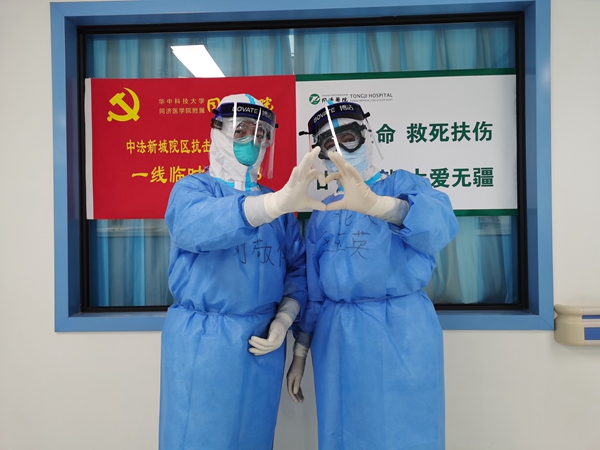Commitment and compassion


She organized the nurses into several multidisciplinary teams-in each shift, there were nurses familiar with intensive care, cardiology, neurology and infectious disease.
In the first few days, Wang noticed some of the nurses were nervous or worried about entering the wards.
"They would stop to look in the mirror several times before they would go in," Wang recalls.
To reassure the nurses, she offered to examine all of the nurses' protective gear every single time they entered the ward. Only if she said yes could they proceed.
"They are like my children, and I have the responsibility to ensure their safety. I would also tell them to be careful and double check when taking off the garments," she says.
Wang's eagle eye was not just reserved for her staff. She noticed the signs of worry in the patients, too. She would talk to them gently and comfort them.
"Some patients would just say a single sentence to you before staring intently at the monitor displaying their oxygen saturation, through which you could tell that they were nervous," she explains. "We would always call the elderly patients grandma or grandpa to create a bond with them."




































